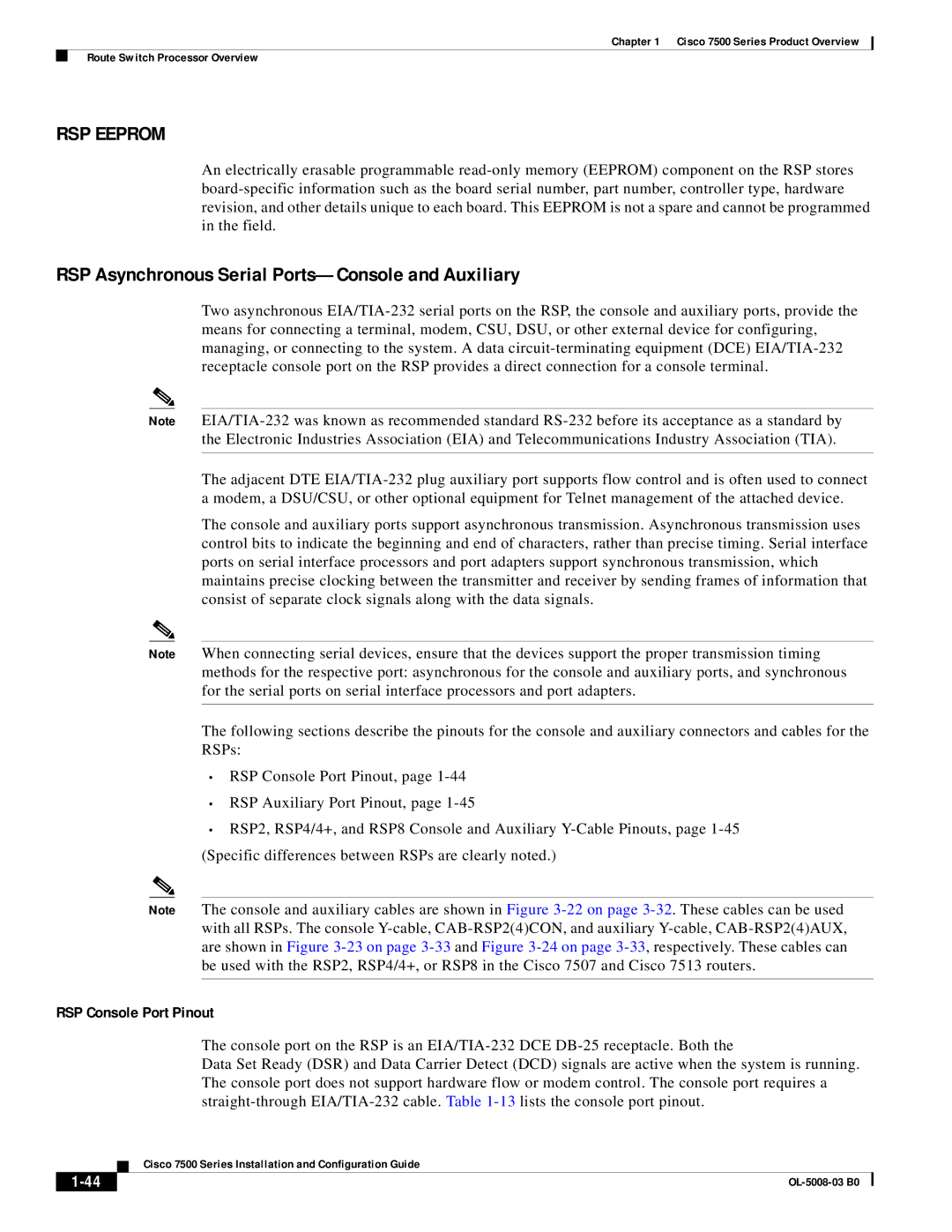
Chapter 1 Cisco 7500 Series Product Overview
Route Switch Processor Overview
RSP EEPROM
An electrically erasable programmable
RSP Asynchronous Serial Ports—Console and Auxiliary
Note
Note
Note
Two asynchronous
The adjacent DTE
The console and auxiliary ports support asynchronous transmission. Asynchronous transmission uses control bits to indicate the beginning and end of characters, rather than precise timing. Serial interface ports on serial interface processors and port adapters support synchronous transmission, which maintains precise clocking between the transmitter and receiver by sending frames of information that consist of separate clock signals along with the data signals.
When connecting serial devices, ensure that the devices support the proper transmission timing methods for the respective port: asynchronous for the console and auxiliary ports, and synchronous for the serial ports on serial interface processors and port adapters.
The following sections describe the pinouts for the console and auxiliary connectors and cables for the RSPs:
•RSP Console Port Pinout, page
•RSP Auxiliary Port Pinout, page
•RSP2, RSP4/4+, and RSP8 Console and Auxiliary
The console and auxiliary cables are shown in Figure
RSP Console Port Pinout
The console port on the RSP is an
Data Set Ready (DSR) and Data Carrier Detect (DCD) signals are active when the system is running. The console port does not support hardware flow or modem control. The console port requires a
| Cisco 7500 Series Installation and Configuration Guide |
